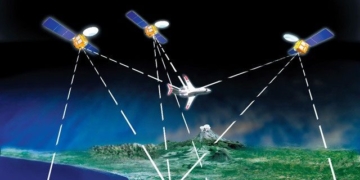Satellite Internet is a promising field, yet challenges remain in bringing network connectivity to more people.
Satellite Internet is an innovative technology gaining traction with the involvement of SpaceX and several technology corporations from China. However, technology experts argue that this concept may not be feasible for everyone, everywhere.
Specifically, the limitations of developing satellite Internet include policies in each country, as well as economic and social barriers that affect many people’s ability to access the Internet.
“Focusing solely on technology development can sometimes be a shortsighted action. In reality, satellite Internet has many limitations that have yet to be addressed,” journalist Shira Ovide from The New York Times shared.

Elon Musk discusses the future of Starlink at MWC 2021. (Photo: HT Tech).
Essentially, satellite Internet is a useful solution for areas where traditional Internet systems cannot reach, such as mountainous regions or remote locations. However, believing that this idea will solve global Internet issues is unrealistic.
At the MWC 2021 event, Musk stated that SpaceX’s satellite Internet service would meet the needs of 5% of the world’s population, where wireless and fiber optic networks are unavailable.
In reality, the figure Musk mentioned only corresponds to a few hundred million people, which is relatively small compared to the billions who currently lack Internet access.
Technology is not the only issue preventing many from accessing the Internet. There are larger challenges that Elon Musk rarely mentions, such as ineffective legal regulations, social and economic inequality, and corporate interests.
Specifically, most of the subsidies from Internet companies come from taxes they pay to the government, aimed at improving Internet user numbers. Recently, Musk made a Twitter post about the taxes he has to pay. However, he did not mention the $65 billion from the government that has funded his company’s plan to bring Internet to more Americans.
On the other hand, rather than focusing on developing satellite Internet projects, subsidizing state and local governments to spend on expanding Internet service projects would be more practical. Additionally, addressing high mobile Internet service costs in certain areas and intervening in the policies of major Internet providers by lawmakers would help more people access the Internet.


















































